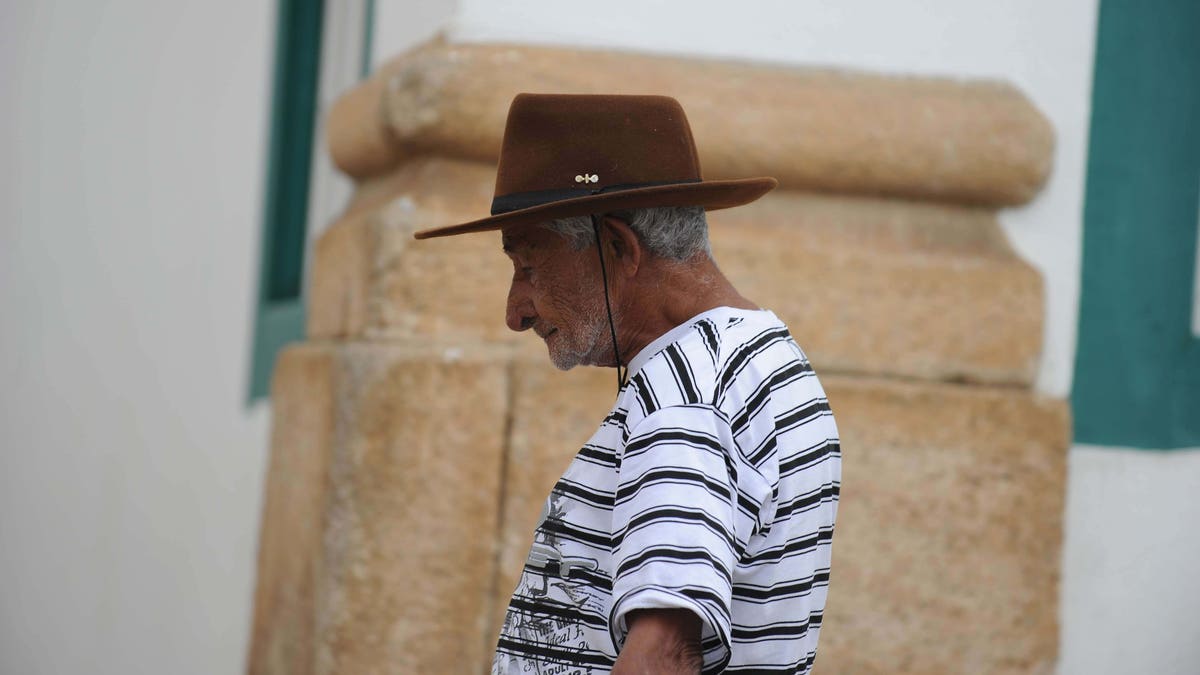
An elderly tourist walks along a street in Paraty, 280km south of Rio de Janeiro, Brazil on April 7, 2012. (Photo credit should read VANDERLEI ALMEIDA/AFP/Getty Images) (2012 AFP)
When Brazilians talk about respecting one's elders, they put their money where their mouth is.
Giving up your seat on a train to an older person or letting them cut in front of you in a long supermarket line is considered good manners in the United States, but in Brazil, it’s the law.
In the South American country all businesses and government facilities are required to provide “immediate” and preferential attention to people over the age of 60. If they fail to comply, they can be fined up to 2,500 reais – about $750.
The law has forced many shops to set up windows that provide exclusive service to seniors – known as “caixas preferenciais,” or "preferred boxes" – and that has become key to helping the elderly, say, land hard-to-get tickets to soccer games or Carnival parades.
The law only applies to private businesses and government facilities, but the northeastern city of Fortaleza has gone one step further: The city elders are allowed to cut any line, anywhere, at any time.
Unsurprisingly, this has proved a popular policy with senior citizens, but it has led to animosity with younger residents.
“When you get there, they look at you and say, ‘Here comes the old bag,’” Tania Gurgel do Amaral, 69, who heads a “Golden Years” social club in Fortaleza, told the Wall Street Journal.
Some say that these lines should be reserved for senior citizens, but only for people who are sick and infirm.
A bar owner in the city, Carlos Aragão, told the Journal that he's tired of seeing older men cutting lines in front of him with their “dyed hair and a pocketful of Viagra.”
Some businesses, however, are taking advantage of the rules by hiring elders as “office boys,” so they can get priority service at banks, notary offices and post offices.
There are also a few young people who see the (very) long-term advantages of the policy.
“When you’re older, you’ll want to have this,” 17-year old Jamyle Ribeiro said.
